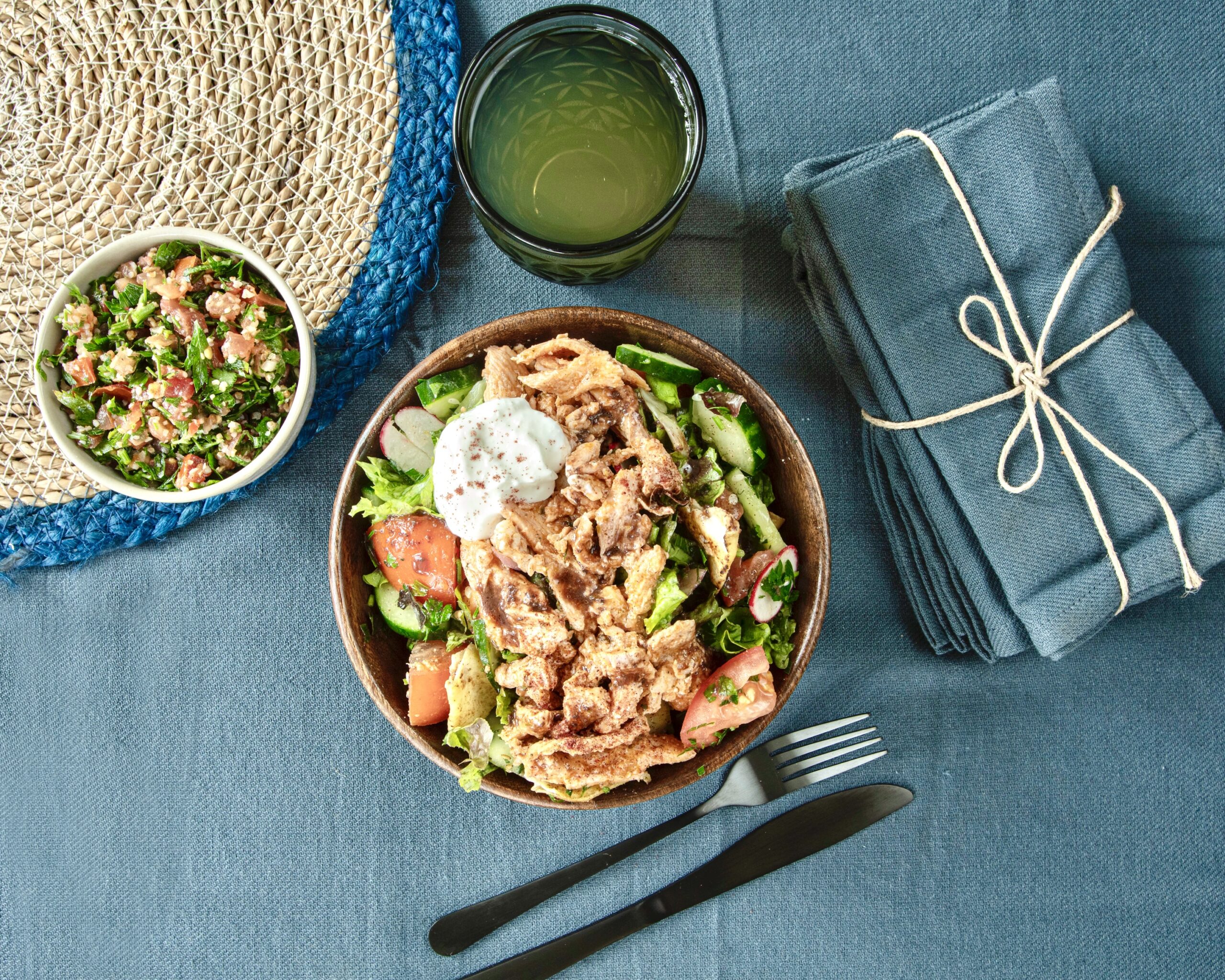In this new article from Health Guide by Libshop, we're going to talk about the superpowers of protein, and why we should all review our protein intake for better health!
Some people want – rightly for ethical and ecological reasons – to reduce their meat consumption, and other people never worry about their protein intake, trusting the products available on the mass market or the supermarket market. restoration. And overall, the majority of people think that they are reserved for athletes, ignoring the benefits they can bring both for physical appearance (hair, skin, complexion, vitality) only for general health.
When we wish improve the quality of your skin, have prettier hair, good quality nails and a prettier complexion, in short, properly regenerate our tissues, we sometimes go through a plethora of methods without ever suspecting a single moment that in many cases, it is in fact the protein intake which is not sufficient.
✨
At the house of Libshop, we are specialized in the manufacture artisanal of mezzes, shawarma, falafel, Lebanese-inspired dishes and pastries for more than 10 years.
👉 Book your table at one of the Libshop restaurants in Paris
👉 Order Libshop for click & collect or delivery
✨
However, even for relatively sedentary people (and even more so for athletes), Inadequate protein intake is one of the most common mistakes, if not the #1 mistake. This pitfall of not bringing enough protein to your plate without being severely deficient – which is therefore vicious because this slight deficiency goes under the radar and we are unable to identify it – very often leads to poor quality skin, brittle hair, a crestfallen appearance, relative vitality, loss of muscle mass, etc…
So many little problems that some people try to resolve by all means, without ever thinking about their protein intake, a subject totally neglected, particularly in large cities where plant-based food has taken precedence over animal food, while it could have been complementary to this for better nutrition.
But then, How do you know if you're not consuming enough protein? And how much protein should we consume each day? This is what we are going to discover here!
How much protein per day?
If we simply take the official nutritional recommendations, we learn that Protein intake can range from 0.83 grams per kg of body weight (ideally target body weight) to 2 grams per kg of body weight per day.
We see immediately that the range is very large, and that it is difficult to choose between the low range and the high range.
To simplify to the extreme, and you will have to confirm all this with your nutritionist doctor and see for yourself by adjusting the intake according to the results, we know that the more sporty you are, or the older you are, or having a weight loss goal, more or can afford to tend towards the high range, and the more sedentary we are with a healthy weight that suits us, particularly for people with a rather “small” size, without any value judgement, the more we can allow ourselves to be between the low range and the middle.
And to simplify further, we will take here a median intake of 1.35 grams per kg of body weight, which would seem to correspond to an average adult of around 72 kg more or less active, which would give around 97.2 grams of protein per day, which we will simplify by a daily intake of 100 grams.
However, you should know that 100 grams per day of protein is not equivalent to 100 grams of meat, fish or lentils, far from it!! This error which consists of confusing the food with the macronutrient contained in it is the basic mistake that most nutrition laymen make.
In reality, in 100 grams of raw meat or raw fish it should be borne in mind that there are approximately between 15 and 25 grams of protein, depending on the situation, and that an average egg contains about 6 grams of protein. Finally, plants such as lentils, chickpeas, broad beans or red beans contain up to 10 grams of protein per 100 grams cooked (not raw), this is also the main reason why these legumes are recommended on a Mediterranean diet.
So to achieve around a hundred grams of protein per day, contrary to popular belief, you should not hesitate to lower the handbrake! Because it would be necessary, for example:
- 3 to 4 eggs or cheese in the morning
- 110 grams of chicken cooked for lunch with possibly a cereal or better, a portion of legume
- An oilseed in the afternoon possibly
- 100 grams of cooked fish at the last meal, ideally with a portion of legumes.
Which would be around 80 to 100 grams of protein.
Aside from certain athletes who are aware of the issue of protein, who can boast of eating so many protein-rich foods? So it's not a question of forcing yourself to reach this protein goal, but rather of slightly increasing your intake, especially when we know that many individuals are in practice barely 60 grams of protein per day. .
It is not always easy to achieve this goal because in our modern societies we are often pressed for time, which sometimes prevents us from having breakfast in the morning. At lunchtime, we have lunch outside, with:
- sometimes "pleasure" meals that it is obviously always good to indulge in, and which are sometimes paradoxically rich in proteins, but which simultaneously provide other foods rich in carbohydrates with too high a glycemic index, as well as unhealthy fats. quality ;
- sometimes “diet” meals, which are falsely healthy, like salads that are much too light with a protein intake that is much too low (because protein is the most expensive raw material), poor quality industrial salad dressings ( oxidized vegetable oils), or even wheat or rice legs without protein, white and sweet rice in excess, etc.
This is not a question of throwing stones at the different proposals but of recalling that protein – accompanied by nature or by cooking with a quality fat – should in most cases be the center of the plate, while plants, and secondly starchy foods, are complementary foods.
It is not for nothing that the word protein takes its origin from the Greek word “πρωτεῖον” (proteion) which means “what comes first”. And this is also the reason why at Libshop, we strive to offer pleasure cuisine that scrupulously respects the standards of the Mediterranean diet, namely plants and quality fats, while ensuring that each meal, whatever the combination taken, has sufficient protein, even if it represents a cost that we assume.
Thus, our sandwiches and our dishes are always garnished at least 100 grams of cooked meat marinated in spices and cut by hand, And our vegetarian proposal is composed of beans, chickpeas, basmati rice and root vegetable which together guarantee not only a sufficient amount of vegetable protein Moreover a complete supply of essential amino acids, namely that we always combine several plant protein sources so that you never run out of certain types of protein.
It was an important reminder for us to make, to tell you that we don't just work for the simple pleasure of serving Lebanese-inspired meals, but also because we find meaning in what we do. , and it would be against our values to serve daily meals that we do not consider to be healthy.
Now that we have recalled the importance of putting proteins back at the center of the diet, I will see you soon for the new article from the Health guide which will cover how we can identify if we are eating too much or too little protein!




